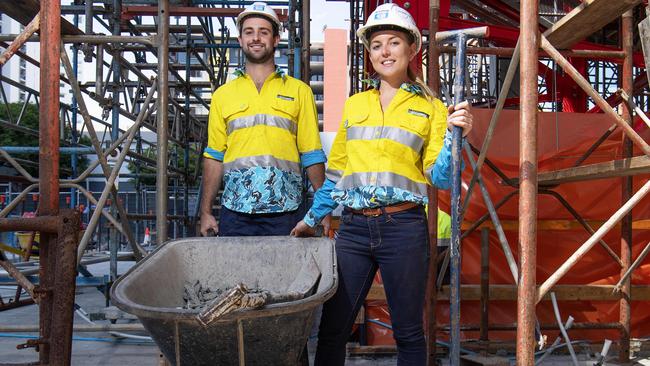Urging NT tradies to talk about mental health, stretching, and care
JUST one in four tradies feel comfortable talking to co-workers about a mental health issue affecting their work — but one in two are open to discuss physical health woes, shows new research

Northern Territory
Don't miss out on the headlines from Northern Territory. Followed categories will be added to My News.
JUST one in four tradies feel comfortable talking to co-workers about a mental health issue affecting their work — but one in two are happy chatting about their physical health woes, shows new research.
TODAY’S TOP STORIES
John Lawrence criticises government over the new Don Dale
‘Orwellian’ liquor bill passes Territory parliament
The Australian Physiotherapy Association’s annual Tradies Health Survey, released this week, found 88 per cent cent of Aussie tradesmen reported taking good care of their tools — but just 60 per cent took good care of their bodies and mental health. Hutchinson Builders contracts administrator Letitia Wing wasn’t surprised by the findings.
Ms Wing said in an attempt to start a conversation about mental health on its worksites, Hutchinson was rolling out new workwear — with ‘This is a conversation starter’ written across the back.
The shirts, available free to employees in partnership with Trademutt, urged tradies to talk about mental health.
“We try to create a culture on site where it is open and honest,” Ms Wing said.
“It’s about starting that conversation.”
Ms Wing said there was still a blokey on-site culture in a lot of NT worksites — but it was softening.
“I do notice it because I’m one of the only women on site,” she said.
NT News subscription offer: $5 a month for the first three months
APA national president Phil Calvert urged Territory tradies to start an open dialogue with bosses and co-workers about personal injuries or issues affecting their work.
“While tradies appear reluctant to open up to their workmates and bosses about mental health issues in particular, the majority (73 per cent) said they wouldn’t think any less of their workmates for taking time off for mental health concerns,” he said.
“So it seems they have tougher expectations of themselves than their co-workers.”


